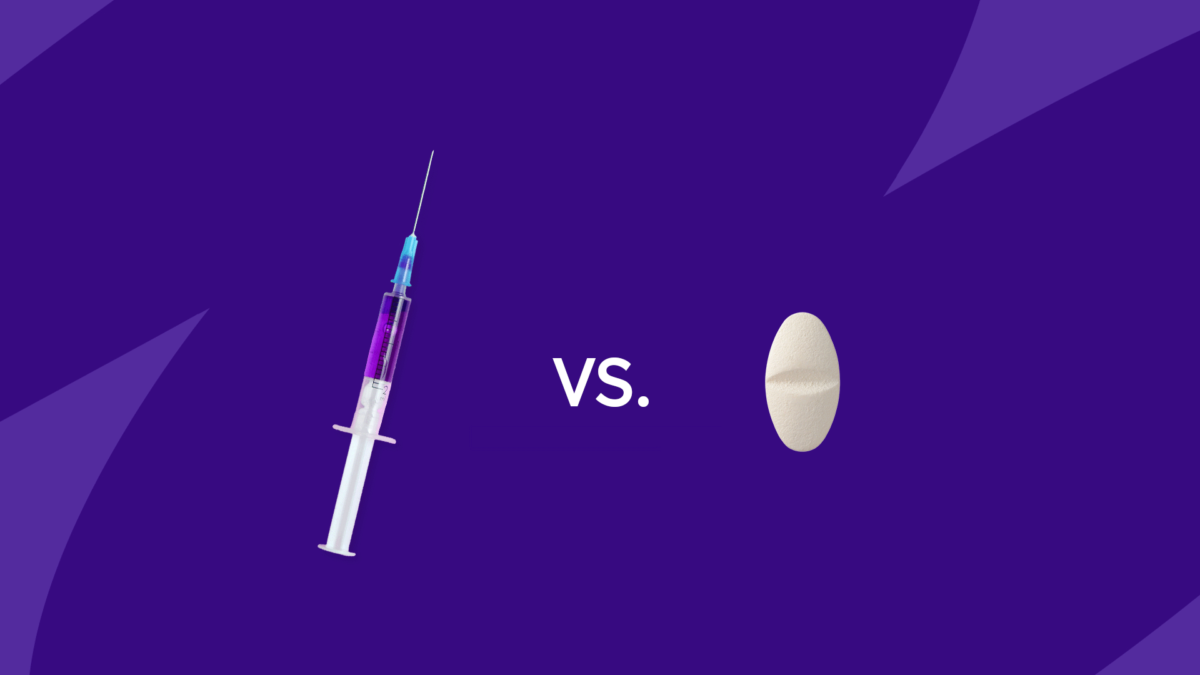Introduction
As new medications for type 2 diabetes and weight management enter the market, patients and healthcare providers must navigate key differences to make informed choices. Rybelsus and Mounjaro are two promising treatments, both helping with blood sugar control and weight loss, but they work in different ways.
This article provides an in-depth, patient-friendly comparison of Rybelsus (oral semaglutide) and Mounjaro (tirzepatide), covering their mechanisms, clinical effectiveness, safety, off-label uses, and practical considerations for those managing diabetes or seeking weight loss solutions.
Understanding Rybelsus and Mounjaro
| Feature | Rybelsus (Oral Semaglutide) | Mounjaro (Injectable Tirzepatide) |
|---|---|---|
| Formulation | Oral tablet | Subcutaneous injection |
| Drug Class | GLP-1 receptor agonist | Dual GIP/GLP-1 receptor agonist |
| Dosing Frequency | Taken daily | Weekly injection |
| FDA-Approved For | Type 2 diabetes | Type 2 diabetes |
| Weight Loss Potential | Moderate | Significant |
| Cardiovascular Benefits | Possible, but not yet confirmed | Shown in clinical trials |
| Storage Requirements | Room temperature | Requires refrigeration |
| Best For | Patients preferring oral medication | Those needing superior weight loss and glucose control |
🔍 Key Difference: Rybelsus is the first and only oral GLP-1 receptor agonist, whereas Mounjaro works on two hormone pathways (GIP and GLP-1) for more powerful blood sugar and weight control.
How Do They Work? Mechanism of Action
Rybelsus (Oral Semaglutide)
Rybelsus belongs to the GLP-1 receptor agonist class, mimicking the glucagon-like peptide-1 (GLP-1) hormone to:
✔ Enhance insulin secretion in response to food intake.
✔ Reduce glucagon release, preventing excess sugar production.
✔ Slow stomach emptying, promoting satiety and controlling blood sugar.
Mounjaro (Tirzepatide)
Mounjaro is the first-in-class GIP/GLP-1 receptor agonist, meaning it targets two key hormones:
✔ GLP-1 action (same as Rybelsus) – Regulates blood sugar and appetite.
✔ GIP action – Enhances insulin secretion and may help the body use fat for energy more efficiently.
💡 Why It Matters:
Mounjaro’s dual mechanism offers stronger glucose control and greater weight loss than GLP-1 medications like Rybelsus.
Clinical Effectiveness: What Does the Research Say?
Blood Sugar Control
Both medications lower HbA1c (a measure of long-term blood sugar), but Mounjaro has shown greater reductions in clinical trials.
🔍 Study Example:
A 2022 trial in The New England Journal of Medicine found:
- Rybelsus (14 mg daily) reduced HbA1c by 1.4% on average.
- Mounjaro (15 mg weekly) reduced HbA1c by 2.3% on average, a significantly stronger effect.
💡 Takeaway: Mounjaro provides superior blood sugar control compared to Rybelsus.
Weight Loss Effects
While both medications promote weight loss, Mounjaro is significantly more effective.
🔍 Study Example:
The SURPASS-2 trial (2021, JAMA) found:
- Mounjaro (15 mg) led to 20% total body weight loss (~50 lbs in some patients).
- Rybelsus users lost ~6-8 lbs on average.
💡 Why? Mounjaro’s dual mechanism (GIP + GLP-1) results in superior appetite suppression and fat metabolism.
Cardiovascular Benefits
- Rybelsus may reduce cardiovascular risks, but long-term data is still being collected.
- Mounjaro is currently being studied for heart health benefits, with early results suggesting reduced inflammation and improved cholesterol levels.
💡 Takeaway: If you have diabetes and are at high risk for heart disease, Mounjaro may offer additional protective benefits.
Off-Label Uses: Expanding the Scope
Rybelsus (Oral Semaglutide)
🔹 Polycystic Ovary Syndrome (PCOS) – May help improve insulin resistance.
🔹 Non-Alcoholic Fatty Liver Disease (NAFLD) – Emerging evidence suggests it reduces liver fat.
Mounjaro (Tirzepatide)
🔹 Obesity Treatment (Pending FDA Approval) – Clinical trials show Mounjaro outperforms Wegovy (semaglutide 2.4 mg) for weight loss.
🔹 Heart Disease Prevention – Ongoing studies explore its potential role in reducing cardiovascular events.
💡 Note: Off-label use should always be discussed with a healthcare provider.
Side Effects & Safety Considerations
| Side Effect | Rybelsus (Oral) | Mounjaro (Injectable) |
|---|---|---|
| Nausea & Vomiting | Common (30-40%) | Less frequent (10-20%) |
| Diarrhea | Moderate occurrence | Moderate occurrence |
| Stomach Pain | Common | Mild |
| Pancreatitis Risk | Rare | Rare |
| Thyroid Cancer Warning | Theoretical risk (animal studies) | Theoretical risk (animal studies) |
🚨 Warnings:
- Both drugs have a warning for thyroid tumors (based on animal studies).
- Avoid in patients with a history of pancreatitis or medullary thyroid cancer.
- Rybelsus has higher rates of nausea due to direct stomach absorption.
Tips for Effective Use
Rybelsus (Oral Semaglutide)
✔ Take on an empty stomach with water, at least 30 minutes before food or other medications.
✔ Swallow the tablet whole—do not chew or crush.
✔ Avoid eating or drinking anything besides water for 30 minutes after taking.
Mounjaro (Injectable Tirzepatide)
✔ Inject once weekly, on the same day each week.
✔ Rotate injection sites (abdomen, thigh, upper arm) to prevent skin irritation.
✔ Store in the refrigerator, but can be kept at room temperature for 28 days.
Key Takeaways
✔ Mounjaro offers superior blood sugar control and more significant weight loss than Rybelsus.
✔ Rybelsus is better suited for patients who prefer oral medication, though it requires strict dosing guidelines for absorption.
✔ Both drugs show potential cardiovascular benefits, but Mounjaro may have a stronger impact on heart health.
✔ Side effects are similar, but Rybelsus has a higher risk of nausea due to oral absorption.
✔ Mounjaro is the better choice for patients prioritizing weight loss, whereas Rybelsus is an option for those who dislike injections.
Conclusion
Both Rybelsus and Mounjaro are effective medications for type 2 diabetes, but their formulation, effectiveness, and primary benefits differ. Rybelsus is a convenient oral option but less effective for weight loss, while Mounjaro provides stronger blood sugar control and more significant weight reduction.
Ultimately, choosing between them depends on patient preferences, health goals, and medical history. Always consult a healthcare provider to determine which option best suits your needs.
